Glendora Review was conceived in an atmosphere of intellectual crisis following the brain drain from Nigeria during the Abacha regime. Its founder, Olakunle Tejuoso, whose family owns the Lagos alternative bookstore after which the journal is named, wanted to create a forum where people could access the work being done by Nigerian intellectuals who had fled the country, and a bridge for artistic theories and activities being propagated by African intellectuals in the West and their contemporaries at home.
Constantly engaging and interrogating the idea of Africa as a contested and dynamic invention, Glendora provided a platform for intellectual discourse on literary, visual, and performance cultures that is sensitive to the mutations and complexities of cultural work on Africa in a global age. A strong aesthetic sense coupled with an editorial style that, while rigorous, managed to avoid being too intellectual or esoteric, attracted a wide-ranging readership in Nigerian and abroad.
Although initially focused on Nigeria’s arts and cultures, Glendora grew into a pan African journal with regular features and interviews of icons such as Ngugi wa Thiongo, Mbongeni Ngema, Sembene Ousmane or Sun Ra, and critical texts on African literature. The journal also included a books supplement.
The last issue of Glendora appeared in 2004 and its publishers have focused since on the publication of books, namely the excellent tome of the West African megapolis, Lagos: A City At Work.
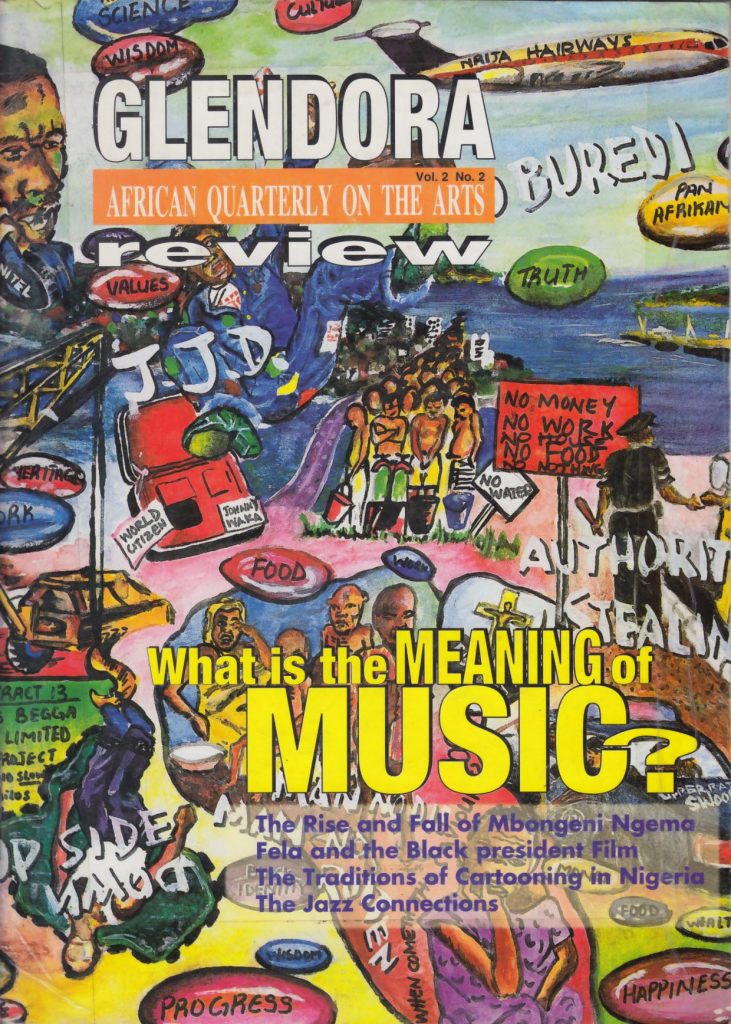



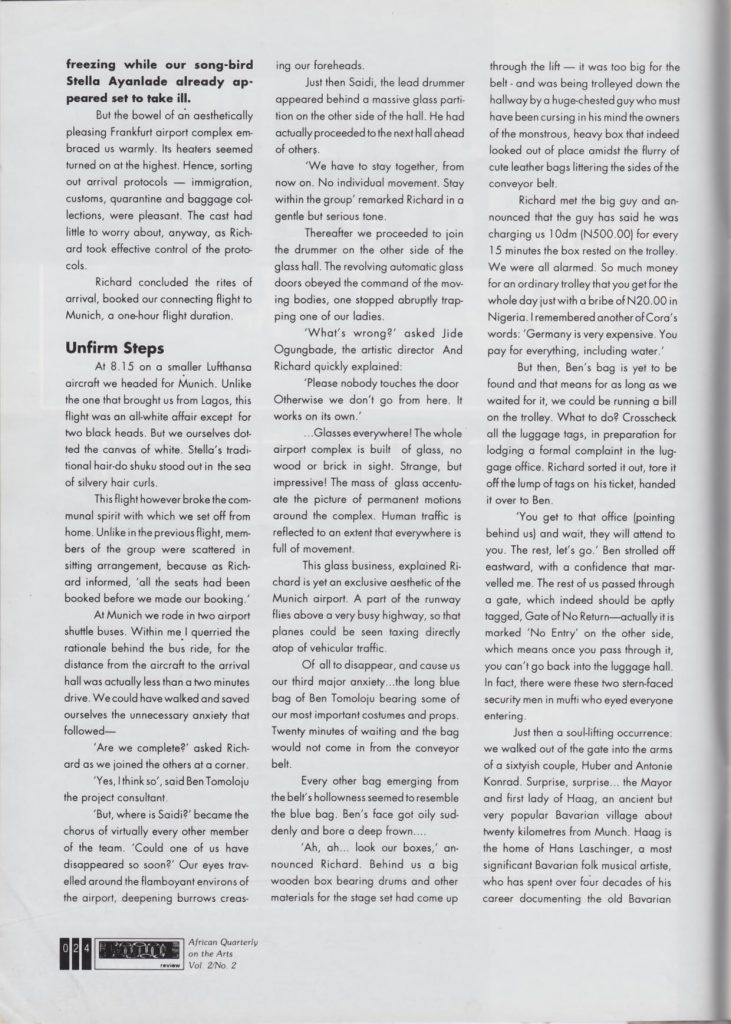
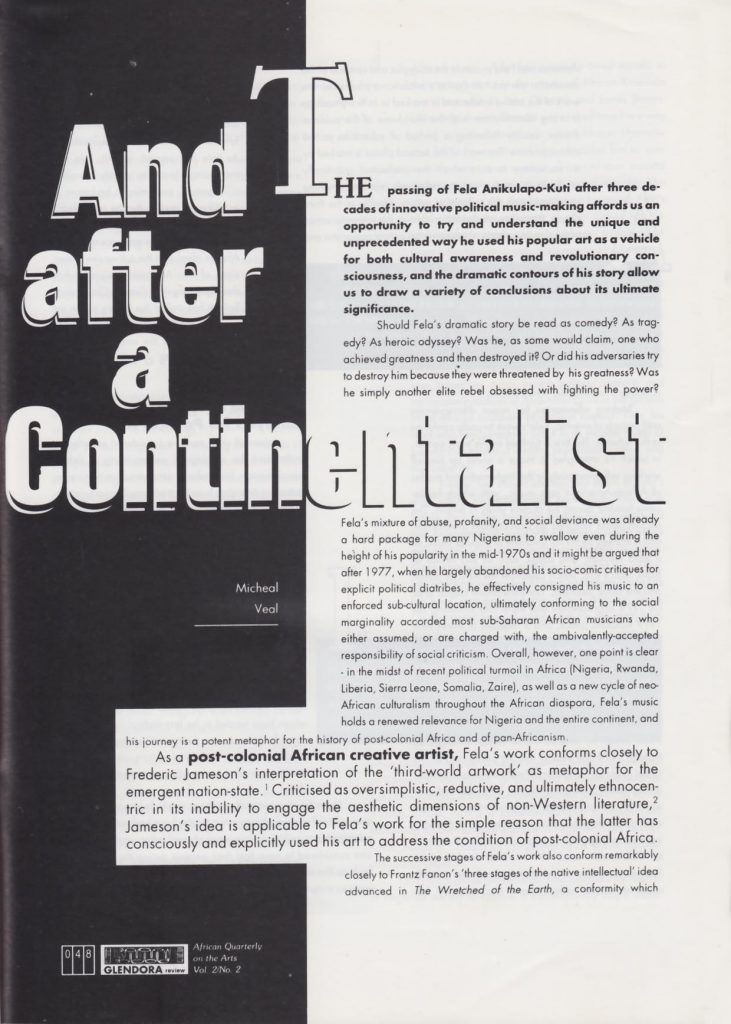
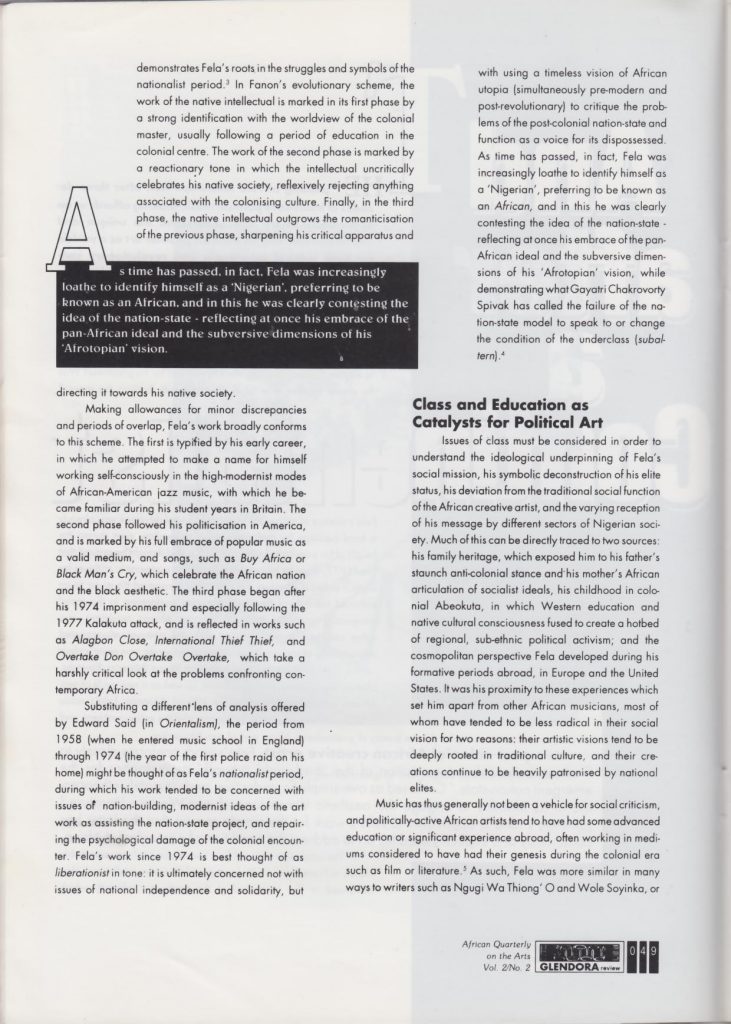

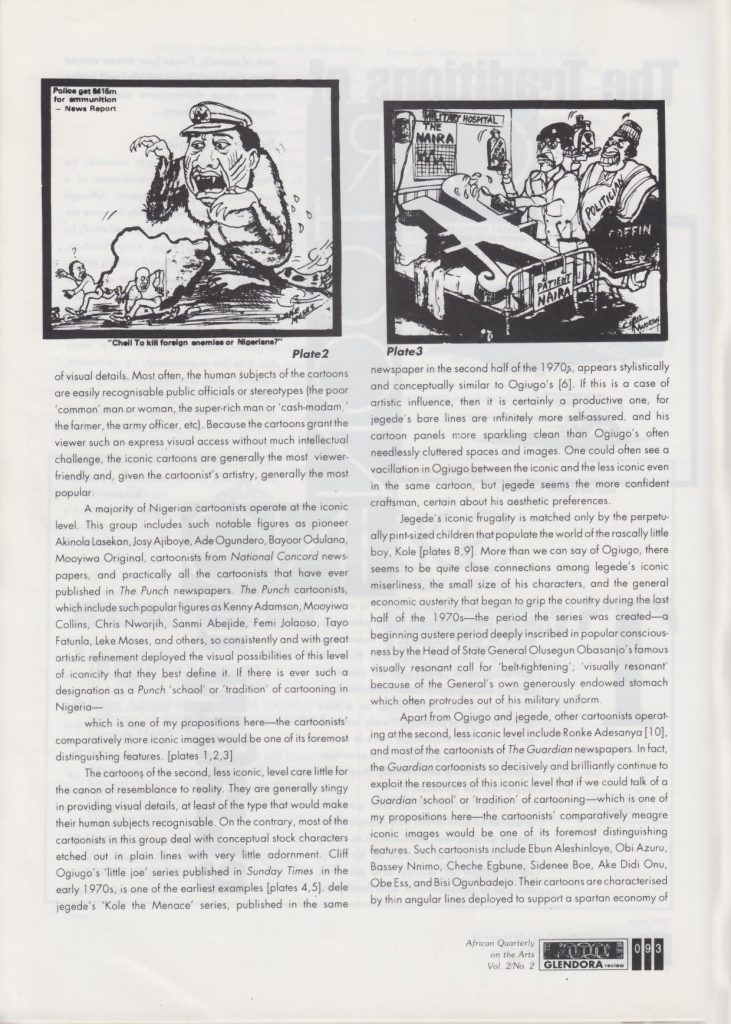
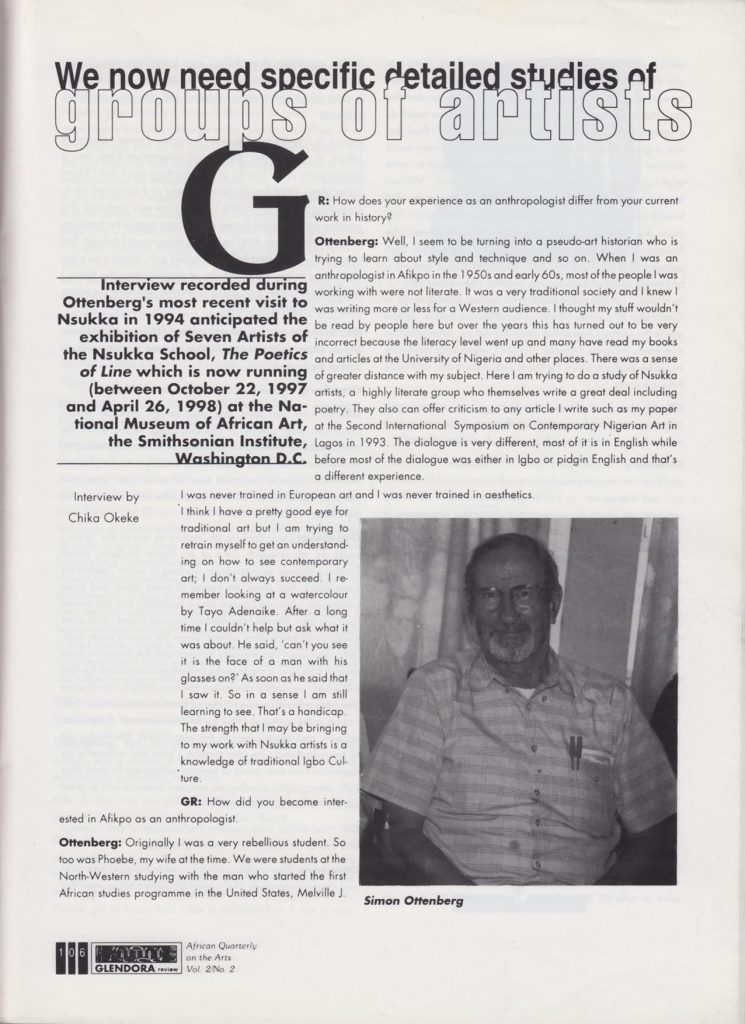
traduction française par Scarlett Antonio
Glendora Review a été conçu dans une atmosphère de crise intellectuelle à la suite du fossé cérébral venant du Nigéria pendant le régime Abacha. Son fondeur, Olakunle Tejuoso, dont la famille possède l’alternative du magasin de livres au Lagos après lequel il prend son nom, voulait créer un forum où les gens pouvaient avoir accès au travail fait par les intellectuels nigériens qui ont fui le pays et créer un pont pour les théories et activités artistiques étant propagées par les intellectuels africains en Occident et leurs contemporains dans le pays.
Constamment engageant et interrogeant l’idée de l’Afrique en tant qu’une invention contestée et dynamique, Glendora fournissait une plateforme pour les débats intellectuels sur la littérature, le visuel et la performance des cultures qui est sensible aux mutations et aux complexités du travail culturel sur l ‘Afrique dans une période globale. Un sens de l’esthétique puissant couplé avec un style de rédaction qui, bien que rigoureux a réussi à éviter d’être trop intellectuel ou ésotérique, a attiré une grande étendue de lecteurs au Nigéria et à l’étranger.
Bien que concentré initialement sur les cultures et arts du Nigéria, Glendora a grandi pour devenir un journal de la [pan] africaine avec des chroniques régulières et interview d’icônes tels que Ngugi wa Thiongo, Mbongeni Ngema, Sembene Ousmane ou Sun Ra et des textes critiques sur la littérature Africaine. Le journal a aussi inclus un supplément de livres. La dernière édition de Glendora apparut en 2004 et ses éditeurs se sont depuis concentrés sur la publication de livres, notamment l’excellent tome de la megapolis Africaine occidentale, Lagos : Une Ville Au Travail
PEOPLE
Dapo Adeniyi, Akin Adesokan, Michael Veal, Okwui Enwezor, Sola Olorunyomi, Greg Tate, Sefi Ransome-Kuti (Sefi Atta), John Collins, Ololade Bamidele, Chika Okeke, Odia Ofeimun, David Aradeon, Giarokwu Lemi, Dele Jegede, Depth of Field Collective
FAMILY TREE
- Black Orpheus (1957)
- Transition (1963)
- New Culture (1978)
- Kurio Africana (1989)
- The Eye (1992)
- Uso (1995)
- Agufon (1997)
- Position (2001)
- Farafina
